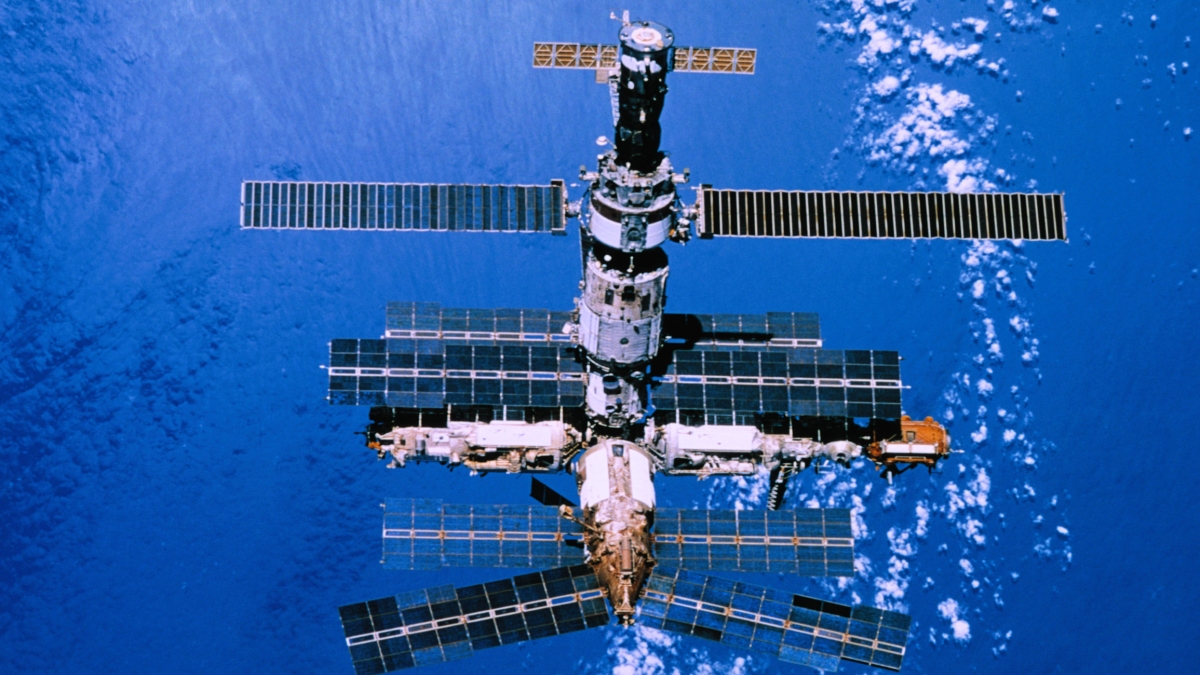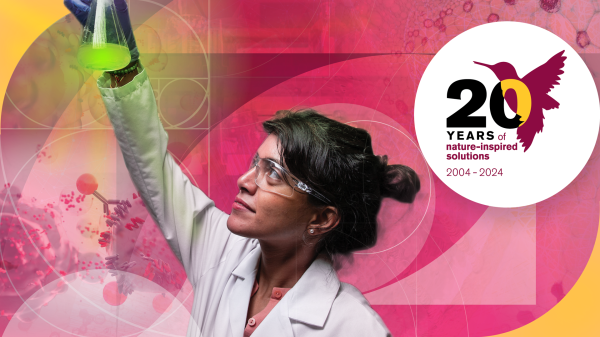New ASU, Nature journal to highlight spaceflight research

The International Space Station will begin hosting one of Cheryl Nickerson's experiments in the coming months.
Photo by: NASA
It’s a field of scientific discovery with practical applications that could be astounding: new drugs and vaccines to halt the spread of disease and infection, improved telecommunications linking people around the world, enhanced manufacturing capabilities and the very future of interplanetary exploration.
That interdisciplinary compendium of scientific research and innovation now has a new home.
On Oct. 10, Nature Publishing Group and the Biodesign Institute at Arizona State University announced the launch of npj Microgravity, a new open access journal. The journal is specifically dedicated to publishing research that enables space exploration and research that is enabled by spaceflight. It will also publish research utilizing ground-based models of spaceflight.
“We are in a Renaissance period for spaceflight research that has tremendous potential for breakthrough advances in diverse scientific and technological domains to benefit life on Earth and exploration of space,” said Cheryl A. Nickerson, a professor in the Biodesign Institute, who is the editor-in-chief of the new journal.
Microgravity, which astronauts experience during spaceflight, is an extreme environment in which gravity is greatly reduced. Studying it provides a unique opportunity to not only enhance future spaceflight missions, but also provides novel insight into our understanding of biological, physical and engineering sciences on Earth.
npj Microgravity, an online-only and free to access journal, captures the discoveries from reduced gravity and other similar environments, thereby providing scientists and science enthusiasts alike a way to stay at the cutting edge with the latest research.
Nickerson, who is also a professor in ASU's School of Life Sciences, is internationally recognized for her pioneering research in utilizing the microgravity environment of spaceflight as a unique research platform to provide novel insight into infectious disease mechanisms and to understand how physical forces dictate the outcome of host-pathogen interactions that lead to disease.
“I am delighted to be a part of this new initiative, which I believe is exactly the type of platform needed to highlight and broaden microgravity and analogue research into widespread mainstream acceptance with the highest values of scientific integrity historically defined by the Nature brand,” she said.
This is the latest launch in the series of Nature Partner Journals (npjs), a new series of online, open access journals published in collaboration with world-renowned international partners. As with all titles within the series, npj Microgravity adheres to high editorial standards and will publish high-quality open research.
“For over fifty years, humanity’s imagination has been captured by what lies beyond our own small planet,” said Martin Delahunty, global head of partnership journals at Nature Publishing Group. “The research undertaken into space exploration has even led to technological advances which affect our everyday life. And for the first time, scientists looking to publish on this topic will have the option of choosing a high quality, dedicated journal which is open to all.”
npj Microgravity will publish scientific research in the life sciences, physical sciences and engineering fields, which is needed to develop advanced exploration technologies and processes, particularly those profoundly affected by operation in a space environment. It will also publish research that is enabled by spaceflight and spaceflight analogues that provide novel insight into biological, engineering and physical sciences to benefit Earth-based research and the general public.
Media contact:
Joseph Caspermeyer, joseph.caspermeyer@asu.edu
Biodesign Institute
480-727-0369
More Science and technology

ASU-led Southwest Advanced Prototyping Hub awarded $21.3M for 2nd year of funding for microelectronics projects
The Southwest Advanced Prototyping (SWAP) Hub, led by Arizona State University, has been awarded $21.3 million in Year 2 funding…

Celebrating '20 Years of Discovery' at the Biodesign Institute
Editor’s note: The Biodesign Institute at Arizona State University wraps up its 20th anniversary with the sixth and final…

Student research supports semiconductor sustainability
As microelectronics have become an increasingly essential part of modern society, greenhouse gas emissions, which are associated…